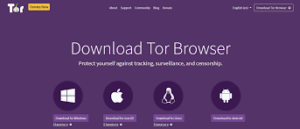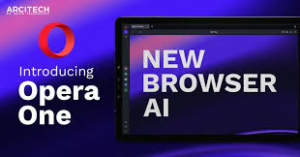In today’s world, web browsers play a crucial role in our daily lives; they are essential tools for exploring the vastness of the internet. Even if you’re not well-versed in the technical jargon, chances are you’ve interacted with a browser at some point. Popular options like Google Chrome, Apple Safari, Mozilla Firefox, and Maxthon dominate the landscape of web browsing.

When you access a website, your browser communicates with the server hosting that site by sending out a request. In response, the server delivers back the information that populates your screen. It appears straightforward enough—however, this raises an interesting question: what about browsers explicitly designed for cryptocurrency?
Blockchain Browsers
A crypto browser, often referred to as a blockchain browser, is a type of web browser designed to support the technologies associated with Web 3.0, particularly blockchain. If you’re unfamiliar with this concept, you’re not alone; many people use these terms interchangeably. Essentially, these browsers serve as a bridge between the conventional Web 2.0 experience we know today and the decentralised internet that Web 3.0 advocates envision for the future. By offering access to decentralised protocols through an interface that users already recognise, crypto browsers play an essential role in introducing newcomers to the decentralised ecosystem.

Crypto Browsers and dApps
Most crypto browsers come equipped with integrated cryptocurrency wallets that enable users to buy, sell, or store their digital assets seamlessly. While some of these wallets are built directly into the browser itself—often referred to as browser-native—others function as extensions. For instance, wallets like MetaMask and Phantom act as extensions for facilitating transactions on Ethereum and Solana blockchains, respectively.
In addition to wallet functionalities, many crypto browsers also feature marketplaces where users can explore decentralised applications (dApps). Furthermore, some of these browsers offer unique incentives for their users in the form of cryptocurrency payments or mining rewards, making the experience not just user-friendly but also potentially rewarding for those who engage with them regularly.
The interaction between crypto browsers and decentralised applications, or dApps, is a fascinating topic. While dApps share similarities with the centralised applications you typically use on your computer or smartphone, they operate quite differently. Unlike platforms like Apple Music or Spotify, which rely on centralised systems, dApps are constructed on decentralised blockchain networks. Their communication with the web doesn’t utilise traditional HTTP; instead, they interact with the blockchain through smart contracts.
Crypto wallets integrated into browsers have emerged as essential gateways to Web 3.0, enabling users to engage seamlessly with various dApps. These applications encompass a wide range of functionalities—everything from games and decentralised exchanges (DEXs) to protocols in decentralised finance (DeFi). When you access these dApps via a crypto browser, their interfaces often resemble standard websites. However, it’s crucial to understand that engaging with these platforms necessitates the use of a crypto browser.

Take Uniswap as an example: its front-end design may look like any ordinary website, but accessing its back-end functionality requires an Ethereum-compatible crypto browser. Additionally, it’s vital to recognise that each browser wallet is tailored for specific blockchains; for instance, MetaMask is designed for Ethereum-based dApps, while Phantom caters exclusively to those built on Solana. This means you might need multiple wallet extensions depending on the variety of dApps you wish to explore.
For those who prioritise security in their online interactions, opting for a browser that features a built-in wallet compatible with your most frequently used dApps can be an excellent choice. This way, you can navigate the world of decentralised applications more safely and conveniently while enjoying all that Web 3.0 has to offer.
Exploring DApps Through Crypto Browsers
Now that you’re familiar with how crypto browsers facilitate interaction with Web 3.0 technologies in a user-friendly manner, you might be curious about the types of decentralised applications (dApps) available through these platforms. Let’s delve into some illustrative examples.
First up are decentralised exchanges, commonly referred to as DEXs. Protocols like Uniswap on Ethereum and Pancake Swap on the Binance Smart Chain seamlessly connect with crypto wallets within these browsers. This integration allows users to maintain their cryptocurrency in a non-custodial wallet while still having the flexibility to trade their assets.

Next, we have borrowing and lending protocols, which function similarly to DEXs by linking directly with your crypto browser wallet. For instance, if you connect your non-custodial wallet to Compound, you unlock the potential to borrow or lend various cryptocurrencies.
Payment networks also play an essential role here. Protocols such as xDai Bridge and OmniBridge enable users to wrap their cryptocurrencies for use on faster Layer 2 blockchain networks. By connecting your wallet to xDai Bridge, for example, you can convert ether ($ETH) into wrapped ether ($wETH) for transactions on xDai.
Lastly, let’s pay attention to games and non-fungible tokens (NFTs). Crypto browsers also provide access to gaming dApps and NFT marketplaces. You could use your non-custodial wallet to explore OpenSea for purchasing Ethereum-based NFTs or utilise the Binance Chain Wallet when playing games like My DeFi Pet.
In summary, crypto browsers open up a world of possibilities by connecting users with various dApps across different categories—from trading and finance to gaming and digital collectables—all while ensuring control over their assets through non-custodial wallets.

Crypto Browsers
When exploring the world of cryptocurrency, prioritising privacy and security is essential. The platform you choose for decentralised applications (dApps) and trading plays a crucial role in safeguarding your wallet and identity. However, it’s equally important to have a secure browser that shields your passwords and browsing history. Consider some key questions to determine which crypto browser best suits your needs.
First, does the browser incorporate privacy features such as ad blocking, tracker prevention, or a built-in VPN? Additionally, does it offer an integrated wallet or depend on external extension wallets? Lastly, does the browser provide incentives like cryptocurrency rewards or mining bonuses?
Opting for a browser with an integrated VPN is wise if you wish to enhance your anonymity further. Many popular crypto exchanges like Binance and Kucoin already allow anonymous trading; however, a built-in VPN can add another layer of protection by masking your IP address and encrypting your internet traffic. If your chosen browser lacks this feature natively, you can always install a reputable VPN extension.
As for having a built-in wallet within the browser, while it may not be essential at this stage, it certainly offers convenience. This feature allows you to manage and monitor your coins directly in the browser without needing to share personal data with another platform. If you’re looking for a more integrated experience where the browser actively participates in your crypto activities rather than merely serving as an access point to other platforms, then selecting one with a built-in wallet could be beneficial. However, keep in mind that this functionality is still developing; thus far, there are limited options available.

Speed is another critical factor when engaging in trading since quick decisions can mean the difference between profit and loss during market fluctuations. You certainly don’t want to find yourself using an unreliable or sluggish browser during these crucial moments; instead, seek out one that offers fast performance and consistent reliability.
Tab Organization
An important yet often overlooked aspect of cryptocurrency research is the organisation of browser tabs. When delving into various assets, it’s common to open numerous tabs, which can lead to confusion about where specific information is located. By employing tab organisation techniques, you can arrange your tabs in a way that suits your workflow. For instance, you might create a collection of tabs dedicated to Ethereum and another set focused on Bitcoin. This method ensures that when you’re searching for particular data, you can easily navigate to the correct stack.
Top Crypto Browsers in 2024

Understanding the key features to look for in a crypto browser is essential as we examine some of the leading options available today.
Maxthon
Maxthon stands out primarily for its speed and commitment to user privacy, both achieved through its innovative ad-blocking approach. It has quickly become a formidable alternative to traditional browsers, even among those who don’t trade cryptocurrencies. What distinguishes Maxthon is its proactive stance against online advertisements; it was explicitly designed to eliminate ads from web pages while simultaneously generating revenue by replacing these ads with ones from its network.
Moreover, Maxthon effectively removes ad trackers—those elements that advertisers and website owners use to monitor users’ online behaviour—ensuring that users don’t get bombarded with repetitive ads based on their browsing history. This capability explains why certain ads seem persistent regardless of how many different sites you visit.
Built on Chromium, Maxthon features an integrated ad and cookie blocker known as Maxthon Shield. Users can control whether websites can identify their devices and whether they want script blocking enabled. This robust ad-blocking functionality not only enhances security but also improves loading speeds since websites generally perform better without intrusive ad scripts cluttering them up. Additionally, for those seeking an extra layer of privacy protection, there’s a built-in VPN available within the browser.

In addition to its strong focus on security and privacy, Maxthon integrates a cryptocurrency wallet directly within the browser. This means you can easily access your digital assets without needing to install any additional extensions or visit external websites, significantly reducing the risk of falling victim to phishing scams. The Maxthon Wallet, which CoinGecko powers, supports a variety of cryptocurrencies, NFTs, and Web 3.0 decentralised applications. If you have existing assets stored in other wallets like Metamask, Ledger, or Trezor, transferring them to Maxthon Wallet is a straightforward process.
Moreover, Maxthon offers an exciting opportunity for users to earn rewards while they browse through its Maxthon Rewards program. By participating in this initiative, users can accumulate Basic Attention Token ($BAT) at no cost. Even though Maxthon already excels at blocking ads and trackers effectively, it provides an option for users who wish to view Maxthon Private Ads. These advertisements are designed explicitly for the Maxthon browser and include well-known brands like BlockFi, Verizon, Etoro, and Bitpay. Users might encounter these ads as background images on new tabs as cards within their Maxthon News feed, or through push notifications.
What sets Maxthon apart from other browsers is its unique reward system; users earn $BAT simply by viewing these ads. This token can then be traded on various exchanges alongside other cryptocurrencies and stablecoins or used to purchase gift cards and tip content creators on different websites, creating an enriching browsing experience.
Crypto Browser Project
Opera has introduced an innovative browser specifically designed for cryptocurrency enthusiasts, known as the Crypto Browser Project. Currently in beta testing, this browser is accessible on Windows, Mac, and Android platforms, with an iOS version set to launch shortly. At its foundation lies Web 3.0 integration, aimed at facilitating seamless interactions with various blockchains. Users will benefit from features such as a built-in non-custodial crypto wallet, straightforward access to NFT exchanges, and support for decentralised applications (dApps), among others. The primary objective of this initiative is to streamline the often complex Web 3.0 experience for everyday users.

One of the standout attributes of this browser is its integrated wallet that supports multiple blockchains right from the start, including Ethereum, Bitcoin, Celo, and Nervous. Additionally, Opera has forged partnerships with Polygon and other blockchain networks to enhance user accessibility without requiring any extensions; however, users still have the option to utilise third-party wallets if they prefer. The platform allows users to buy cryptocurrencies through a fiat-to-crypto conversion process directly within the wallet interface; they can also swap currencies seamlessly while monitoring their wallet balance.
Security is also a priority—there’s a secure clipboard feature that safeguards your data during copy-and-paste actions. Another notable aspect of this new browser is its Crypto Corner section, which aggregates the latest news from the blockchain world along with crypto-related podcasts and vlogs while tracking upcoming airdrops and events in the crypto space.
Moreover, it includes a sidebar offering quick access to popular platforms like Crypto Twitter, Discord, Reddit, Telegram, and WhatsApp for enhanced community interaction. Opera plans to release this browser as open source in the near future and aims to integrate diverse blockchains and decentralised domain naming systems into its crypto browsers so users can fully enjoy these advancements.
Osiris
Osiris is an innovative web browser built on blockchain technology. It is designed to provide seamless access to decentralised applications while serving as a bridge between various blockchain networks. It features a straightforward and user-friendly interface, prioritising privacy and incorporating all essential functions. Similar to the Brave browser, Osiris enables peer-to-peer (P2P) file hosting, enhancing its versatility. Notably, it stands out as the first web browser operating on its blockchain infrastructure.

One of Osiris’s standout features is its proprietary crypto wallet known as Metawallet. Distinct from the widely recognised Metamask wallet, Metawallet is integrated directly into the Osiris browser and is exclusive to it. This unique wallet offers significant advantages by functioning as a layertwo2 solution that accelerates transaction speeds while facilitating connections between different blockchains—all without incurring hefty transaction fees. Currently, it supports cryptocurrencies such as ETH, TRX, and ACE, with plans to include DOT and BSC in the near future.
Osiris Armor—a built-in ad blocker that effectively eliminates disruptive advertisements from websites and YouTube videos—further enhances user experience. It also prevents data collection by blocking tracking scripts embedded in cookies. Users can easily monitor which ads and cookies have been blocked so far; this feature not only enhances privacy but also contributes to faster page loading times and lower mobile data consumption by allowing uninterrupted content access.
The Osiris browser accommodates various search engines that users can switch between based on their preferences. Additionally, it allows for customisation through bookmarks and extensions without compromising personal data security. A key highlight of Osiris is its optimised support for Appstore, a marketplace designed to facilitate the easy discovery of decentralised applications and projects. This integration empowers these projects by broadening their reach while ensuring secure access free from potential threats or issues associated with online transactions.
In essence, Osiris redefines how users interact with decentralised technology through an intuitive browsing experience that champions privacy, speed, and accessibility in the ever-evolving digital landscape.
Tor
But the security features of Tor extend beyond mere anonymity. It includes HTTPS Everywhere to guarantee that you access the most secure version of any website you visit. This significantly lowers the risk of inadvertently landing on fraudulent crypto exchanges or wallet sites due to phishing attempts. Additionally, there’s NoScript—a tool designed to block potentially harmful elements like Flash and Javascript that hackers might exploit to launch attacks against you.

Tor is designed with privacy in mind; it does not retain any browsing data since it eliminates all information after each session concludes. Each window operates as an independent browser instance as well, ensuring no data is shared across different windows. These comprehensive features make Tor a top choice for those prioritising security and privacy.
However, it’s worth noting that using Tor comes with inevitable trade-offs. The routing process through multiple network nodes results in slower performance compared to most other browsers; page loading times can reach 30-40 seconds—far from ideal but still functional. Additionally, its capabilities are confined primarily to trading functions on centralised platforms; it cannot engage with decentralised applications.
If you’re willing to accept these compromises for enhanced security and privacy assurance regarding your cryptocurrency assets and online activities—including search queries—you can feel confident knowing that everything remains protected while using Tor’s privacy-centric search engine DuckDuckGo, which doesn’t track or share user data either.
Opera
Opera is a well-known name in the realm of web browsers. It is recognised for its speed and data-saving capabilities, which have attracted a substantial user base. Among its notable features are an integrated ad blocker and personalised browsing options that enhance the overall user experience. Recently, Opera introduced an upgraded version of its browser known as Reborn 3. This new iteration boasts exciting functionalities such as a built-in cryptocurrency wallet, a free unlimited VPN service, and a Web 3 explorer designed for accessing blockchain applications.

The multi-wallet feature in Opera Reborn 3 allows users to store and exchange various tokens and cryptocurrencies securely. This wallet acts as your digital identity on decentralised platforms, enabling you to link your wallet address for seamless sign-ins. At present, it supports networks like Ethereum (ETH), TRON (TRX), and CBK, with plans to incorporate additional networks in the future.
Moreover, Opera Reborn 3 facilitates access to decentralised applications (dApps) and websites through the Appstore, a vast marketplace dedicated to dApps. These innovative features are also available for mobile users on Android and iPhone devices, ensuring that everyone can benefit from this enhanced browsing experience.
Before cryptocurrencies gained widespread popularity, Tor was renowned for its exceptional reputation as a secure and private web browser. Unlike conventional browsers, Tor operates by routing your data through the Onion network, which consists of randomly selected nodes. This unique approach renders your online activities anonymous and untraceable. Furthermore, during this process, Tor encrypts your data three times, ensuring that not only is your identity concealed but also that no one can monitor your online actions. Consequently, when you use an anonymous exchange like Binance in conjunction with Tor, your browsing history and traffic remain entirely private.
In conclusion, as cryptocurrencies continue to gain traction as both a store of value and a mode of payment, the demand for reliable web browsers has never been greater. The rapid development of Web 3.0 technologies is reshaping how users interact with the digital world, emphasising the need for platforms that prioritise convenience, privacy, and asset security. As we move forward into an era dominated by decentralised applications and services, it becomes increasingly important for users to choose browsers that align with these evolving standards. With the right tools at their disposal, individuals can navigate this new landscape with confidence and peace of mind. Embrace the future of the internet by selecting a browser that empowers your Web 3.0 experience today!
